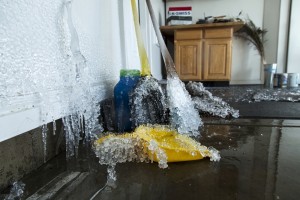A Little Heat Per Day Keeps Frozen Pipes Away
 This week has sure brought on some serious cold to our South Jersey region, with some nights the thermometer reading in the single digits. New record lows have been set all around, and it was the first time in a while that people were advised to stay indoors due to the cold. While the cold may be a problem for any outdoorsman in our region, it poses a significant threat to homeowners, in the form of pipes freezing.
This week has sure brought on some serious cold to our South Jersey region, with some nights the thermometer reading in the single digits. New record lows have been set all around, and it was the first time in a while that people were advised to stay indoors due to the cold. While the cold may be a problem for any outdoorsman in our region, it poses a significant threat to homeowners, in the form of pipes freezing.
Pipes freezing over pose a very prominent problem for homeowners of all types. Since water has the ability to expand upon freezing, water frozen in pipes can expand, and exert unprecedented pressure on the pipe. This pressure, in turn, can burst the pipe, and before you know it, you’re flooded with damage and repair bills. So, in order to prevent that, we have come up with a few quick tips on what to do when the weather gets cold to prevent a frozen over pipe.
Keep garage doors closed when pipes are present. This may sound like a no-brainer, but keeping the garage doors closed will prevent extreme cold from reaching plumbing pipes. In the cold, only open the garage when it is necessary, and close it promptly when you have finished.
Keep a constant household temperature both during the day and night. During the winter, many homeowners try to reduce their heating bill by decreasing the thermostat at night. However, in a cold patch, much like the one we just had, this action can be a catalyst for pipes to freeze over. Colder night temperature plus a colder home temperature gives more of a margin for pipes to freeze. Instead, leave the thermostat at a constant temperature during the day and night. While this may increase your heating bill by a little, it is much more cost-effective than having to pay for the damages a burst pipe can do.
Finally, if you are going away for a while, do not turn the heat off; leave it at a temperature no less than 55 degrees. A house with no heat is a house ripe for a pipe burst. Again, you may want to skimp out on this in order to save on the heating bill, but trust us, keeping your home at a modest 60 degrees is a lot cheaper than paying for all the water damage a pipe can do when you’re not home.
So there you have it, a few quick tips on preventing pipes from freezing over, and in turn, bursting. We may be coming out of this cold spell, but please keep these tips in the back of your mind the next time we enter into an arctic plunge. Your pipes, family, home, and wallet just might thank you for it.




